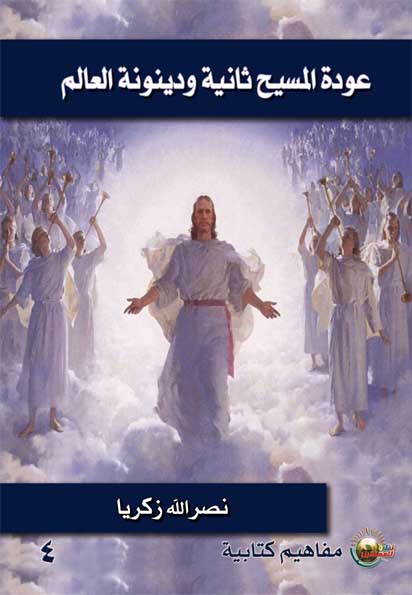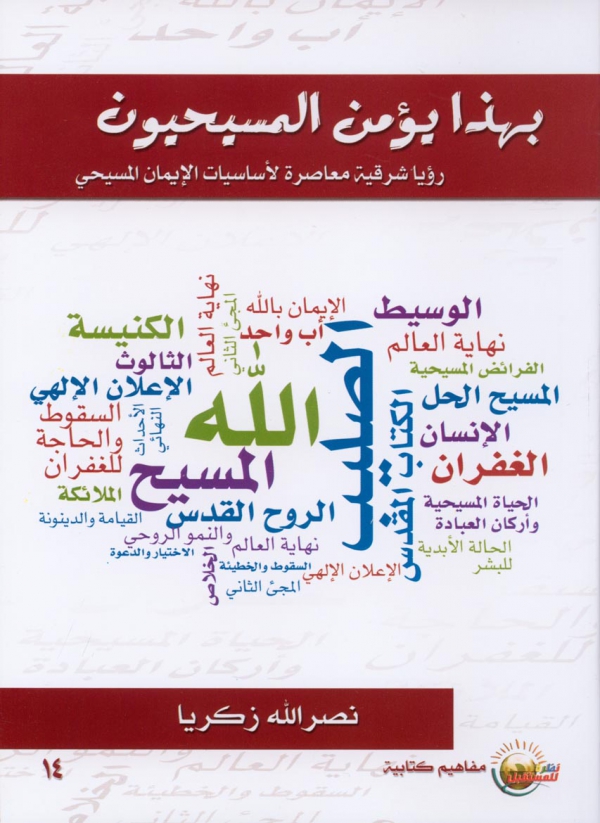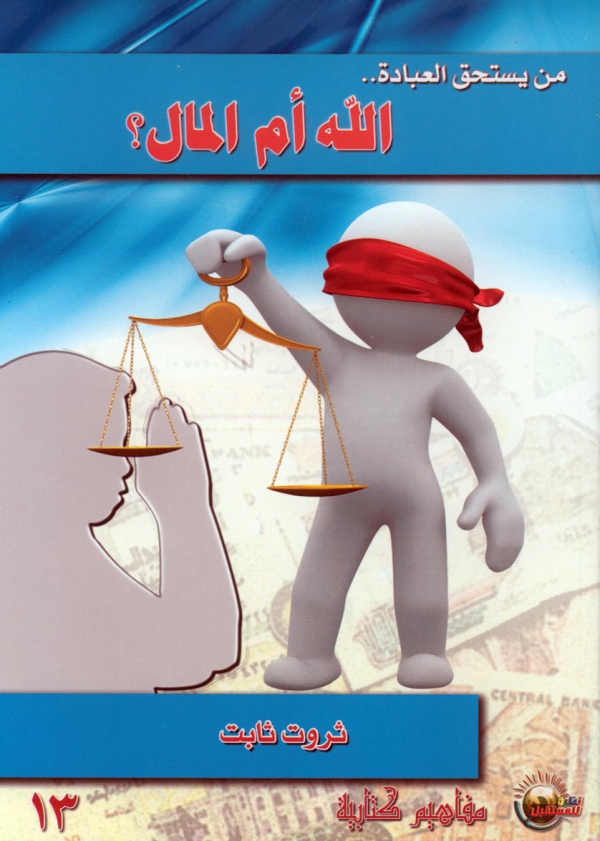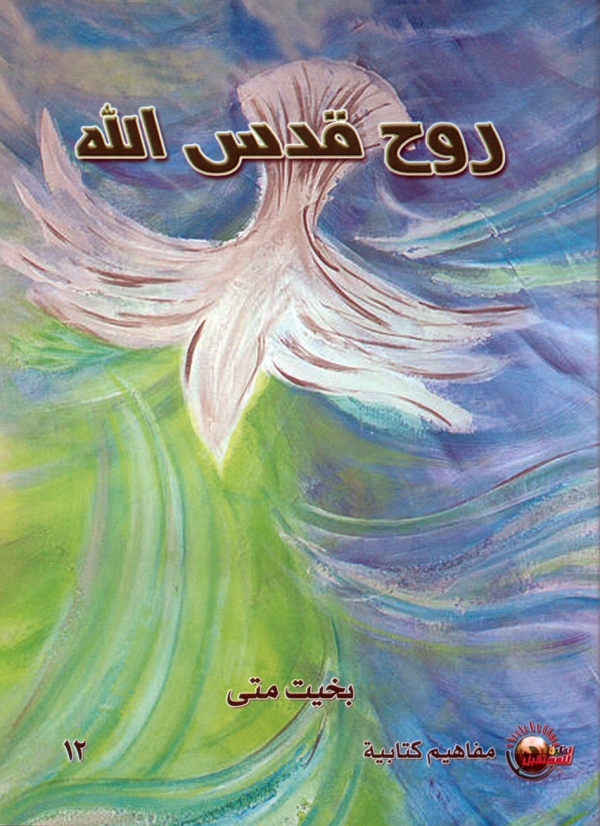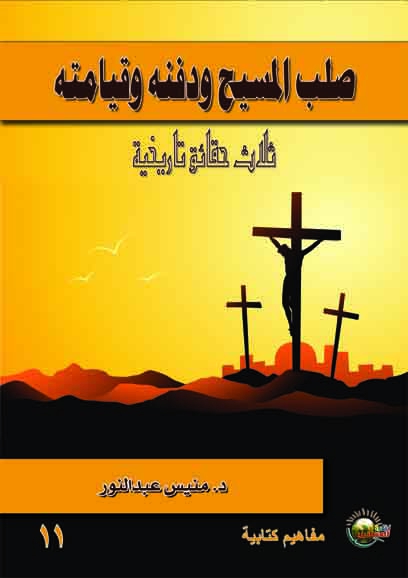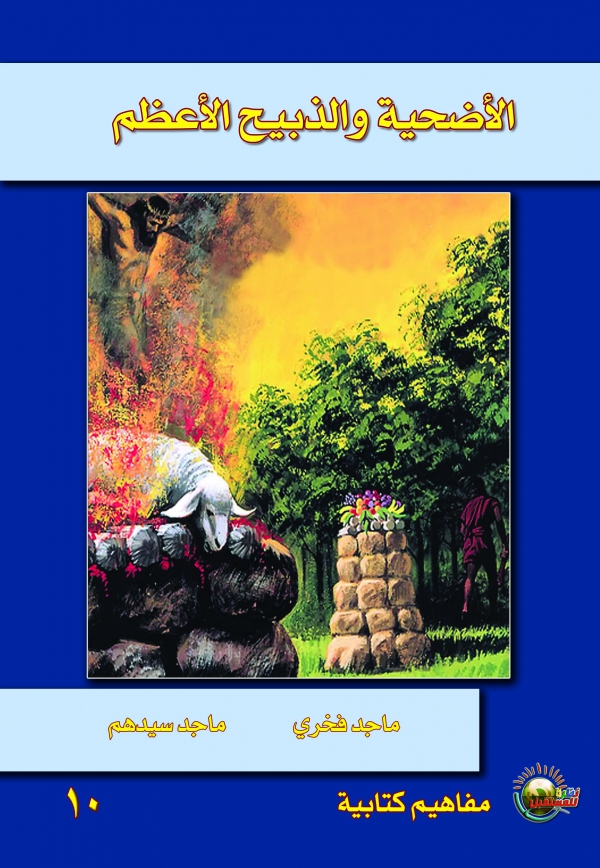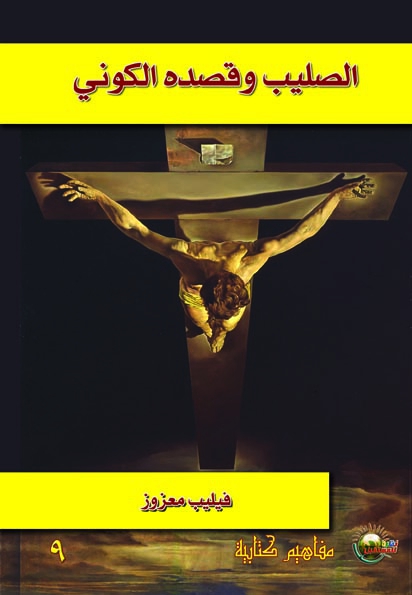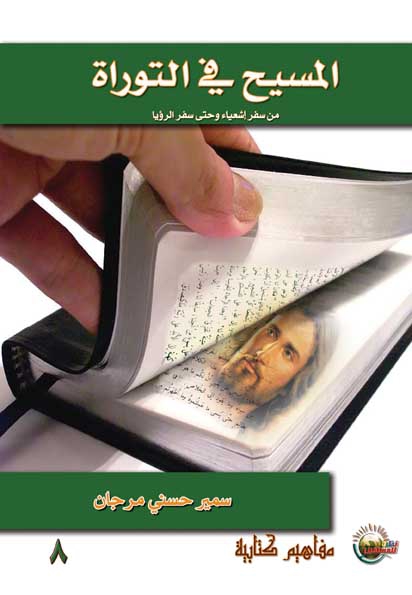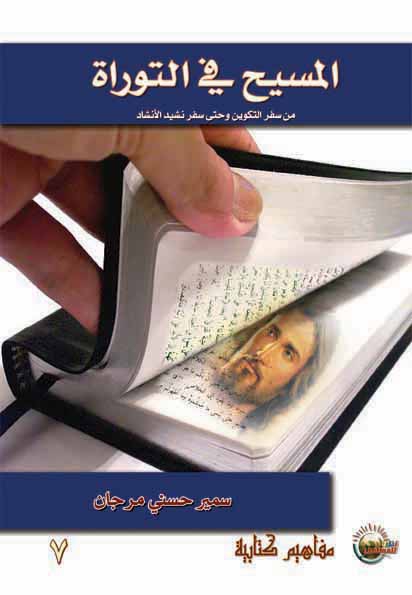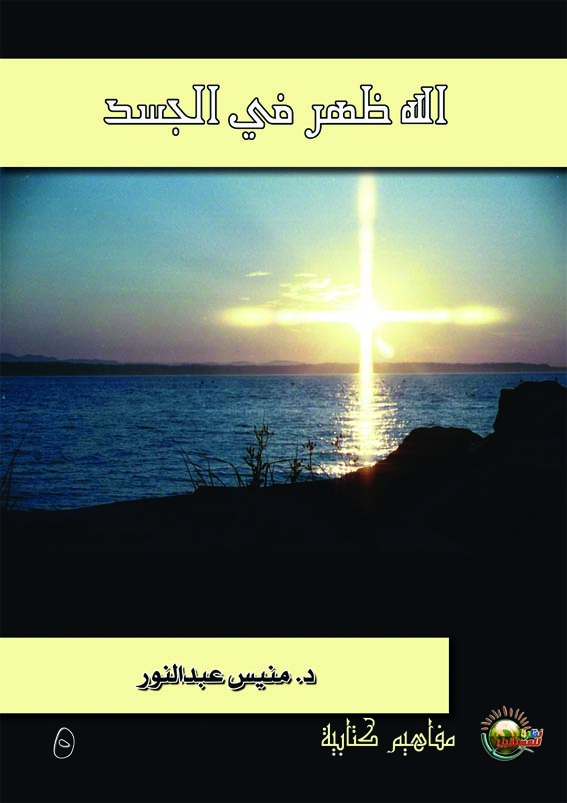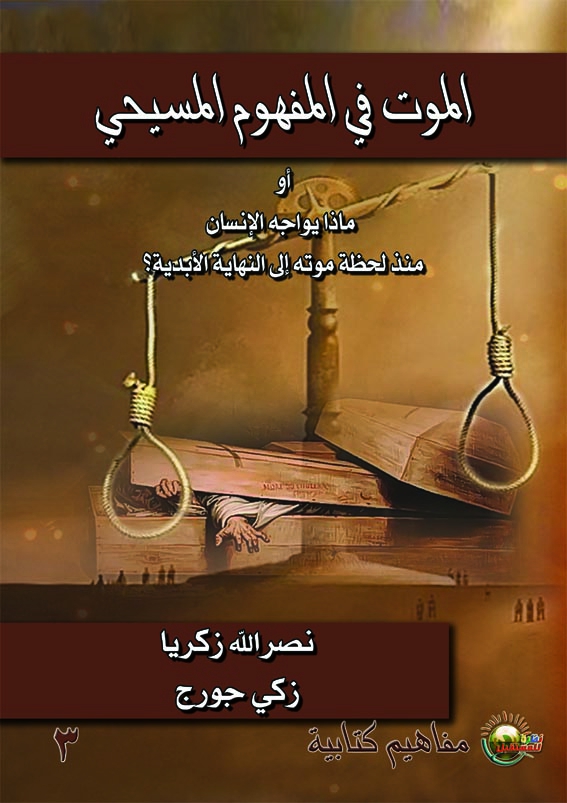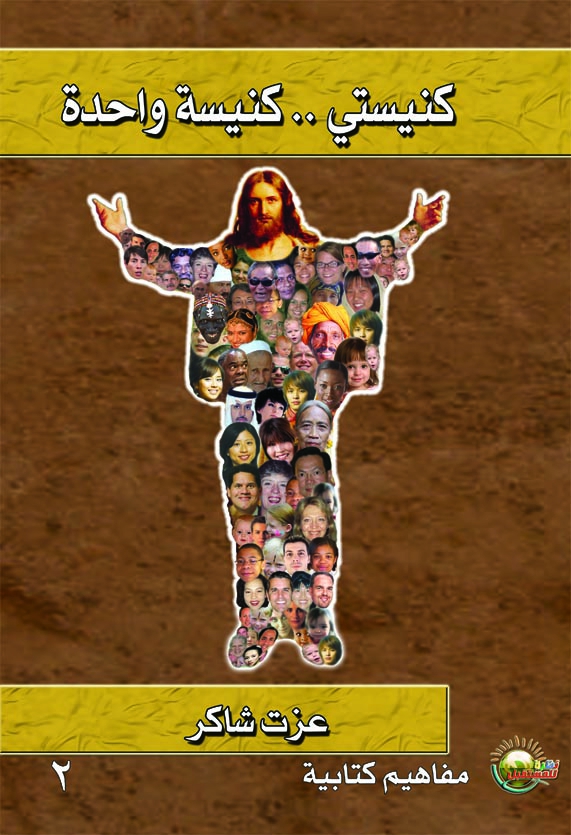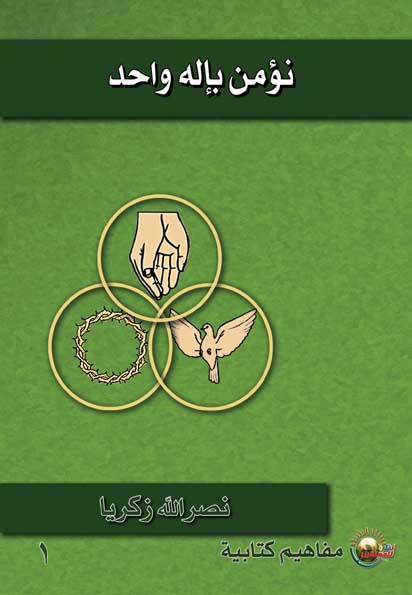Biblical Concepts
There is no doubt that we are all prone to stumbling in our spiritual life due to the wrong concepts of theology which we have formed in our minds. This series is designed to discuss key spiritual concepts in a way that reveals and clarifies biblical truths and is comprehensible to the contemporary Arabic mind.
The Second Coming Of Christ And The Last Judgment
الكاتب: Rev. Nasrallah Zakaria
الناشر: Vision For Future
In "the Second Coming of Christ and the Last Judgment," the writer Rev. Nasrallah explains how this topic has raised much controversy and debate. All the Eastern religions confirm and agree upon this singular fixed inevitable truth: the return of Christ again to judge people at the end of the world.
The author deals with many aspects of this topic which can help us to better understand certain biblical facts and concepts. The book consists of thirteen chapters.
Chapter 1 discusses the doctrine of the second coming of Christ according to the Christian prospective. The author deals with the doctrine as it is revealed in the New Testament. The author sees that the New Testament does not refer to the coming of Christ every time it mentions the second coming of Christ, but it does present several images of the second coming of Christ. The New Testament uses four words that explain the significant kinds of this coming. These words are: "the Lord's coming," "his revelation," "his appearance," and "the Master is coming".
The second chapter, entitled, "the Reality of the Second Coming of Christ," mentions many testimonies that emphasize the second coming of Christ, including:
- The words of Christ, "Then will appear the sign of the Son of Man in heaven. And then all the peoples of the earth will mourn when they see the Son of Man coming on the clouds of heaven, with power and great glory," (Matthew 24:30).
- The words of the disciples and the apostles, "And when the Chief Shepherd appears, you will receive the crown of glory that will never fade away," (1 Peter 5:4).
- The angels testimony about his coming, "Men of Galilee," they said, "Why do you stand here looking into the sky? This same Jesus, who has been taken from you into heaven, will come back in the same way you have seen him go into heaven," (Acts 1:11).
- Old Testament texts mentioning the facts and circumstances of the first coming, as the prophets prophesied the birth of the Savior, the place of his birth, his crucifixion and resurrection. Every reader of the New Testament can see how amazing the fulfillment of all these prophecies is, as they were written hundreds and thousands of years before the coming of Christ. The certainty of the second coming of Christ underlines the truthfulness of the Word of God, just as their fulfillment points to the certainty that these words were divinely inspired prophecies.
As a result of this certainty about the second coming of Christ, it is natural to ask about "the nature of the Second Coming of Christ," which enters a deeper level of discussion in Chapter 3. Rev. Nasrallah explains that through our reading of the New Testament, we are able to realize the nature of Jesus' coming. It will be personal, visible, sudden and unexpected, and he will come with glory and power.
As a result of the certainty, nature and reality of the second coming of Christ, this doctrine has particular importance in all different churches. In chapter 4, the writer tackles addresses "the Second Coming of Christ and its Importance as a Christian Doctrine," bringing together many of the reasons which make this doctrine so important.
Chapter 5, entitled "The Zionist Use of the Second Coming of Christ," discusses a critical issue which is represented in how the Zionist movement has penetrated Christianity using this doctrine as a foothold. He reveals how they have tried to put the doctrine of the second coming of Christ together with the doctrine of the coming of the Messiah in the Jewish concept. Movements and conferences were formed and named Christian-Jewish common names, such as the Christian Zionist movement, the International Christian Embassy and others. The question becomes: What is the motivation behind this? What is the purpose of Zionism? This chapter answers all such questions in detail.
In Chapter 6, the author writes about a number of important points under the heading "When will Christ Come Again?" Are there any specific signs for the second coming? It is plain from the title of the chapter that this chapter deals with the timing of the second coming. In this chapter, the author introduces a few of the individuals who have attempted to calculate the time of Christ's second coming, including: Charles Russell Tarr, and his successor Joseph Franklin, from Jehovah's Witnesses; and then Lee Jang Rim, who also tried to determine the time of the second coming. Despite all of the attempts in history, Christ preemptively put an end to this issue by saying that the time is unknown to anyone. The writer concludes the chapter by presenting many signs of the nearness of the second coming.
In Chapter 7, entitled "Israel in the Bible and the Christian Concept," Rev. Nasrallah narrates the story of the Israeli people since God's covenant with Abraham and the descent of Jacob to Egypt. He talks about the Exodus, the Ten Commandments in the wilderness, and the covenant between God and the people of Israel. He raises many questions such as: Are the people of Israel now God's only chosen people? Will the Jews gather from around the world to possess the Promised Land? Is there a so-called Promised Land? Discussion of these questions continues in Chapter 8, "Christian Attitude towards the Different Concepts." The author answers various questions, and addressed some concepts that may lead to wrong interpretations if they are not understood correctly, including: the choice of Israel and the Covenant, the Promised Land, the descendants of Abraham, and the Kingdom of Christ.
In Chapter 9, the author asks an important question related to the interpretation of the prophecies about the second coming of Christ. The readers may agree or disagree with such a question "Is the establishment of Israel's State a sign for the second coming of Christ?"
We must not forget that when we talk about a Christian eschatology, there are various schools of thought and theology that tackle the doctrine of the second coming of Christ differently. The strange thing is that each Christian denomination interprets the matters relating to the future and the second coming of Christ in a slightly different way. We must realize that their differences in this matter do not affect the essence of the second coming of Christ, but they merely affect the details of how and when this event is expected to reveal itself.
Rev. Nasrallah gives us a detailed presentation of each of these schools in Chapter X, entitled "The Most Important Differences and Theological Schools."
Firstly, the School of Literal Interpretation is divided into two factions:
1. The first team believes that the Millennial Kingdom, in which Christ will rule the earth literally for 1,000 years, must precede the second coming of Christ.
2. The second team believes that the second coming of Christ will be after the end of the Millennial Kingdom, but the followers of this team found difficulty in determining the beginning of the 1,000 years.
Secondly, the School of Spiritual interpretation
The author presents the main features and interpretations of these schools for the second coming of Christ.
In Chapter 11, entitled "Discussion and Questions," the writer presents a quiet discussion done by many people belonging to different schools. Each person expressed his school of interpretation presenting the evidence and proofs that emphasize his views. The reader needs to read these opinions and choose the school that seems to provide the evidence and proof which is most acceptable to his mind, and which is most consistent with the prophecies of the Bible.
In Chapter 12, Rev. Nasrallah says that since the beginning of the church in the first century, believers were waiting for the second coming of Christ in their days, and yet, he has still not come, to this day. For this reason, the author discusses how we reap the fruits of the delay of Jesus Christ's second coming. The author explains that the Bible provides us with advice that will help us, including watchfulness and readiness, patience and confidence, trade with talents, shepherding of the flock, and Christian service.
Rev. Nasrallah concludes, "When the researcher neutrally and objectively deals with a topic about Christian eschatology, the light of biblical teaching is the only guide amidst the different schools of thought and interpretation." The author presents several biblical facts that must be considered in order to safely and truly teach this important doctrine.
